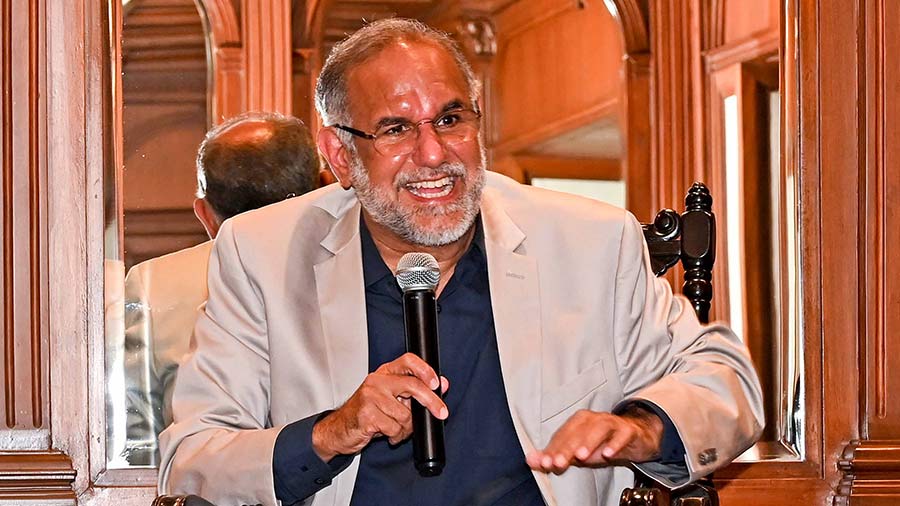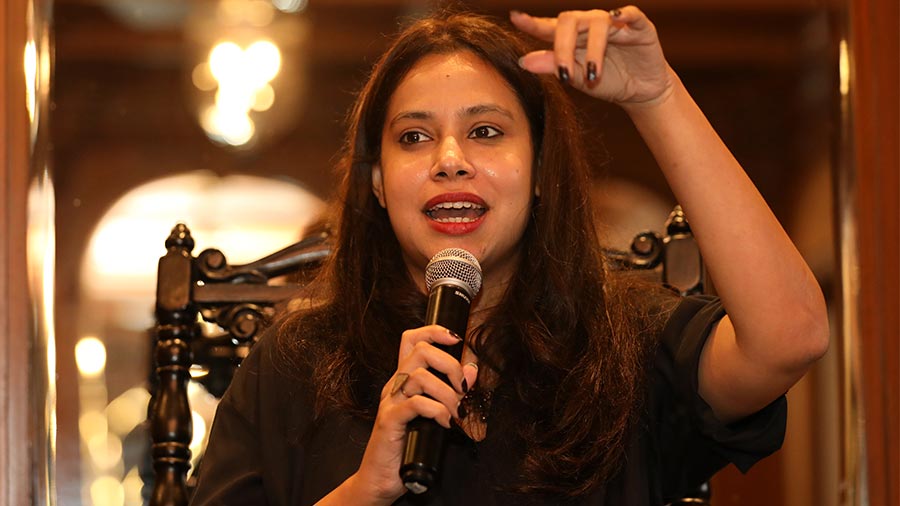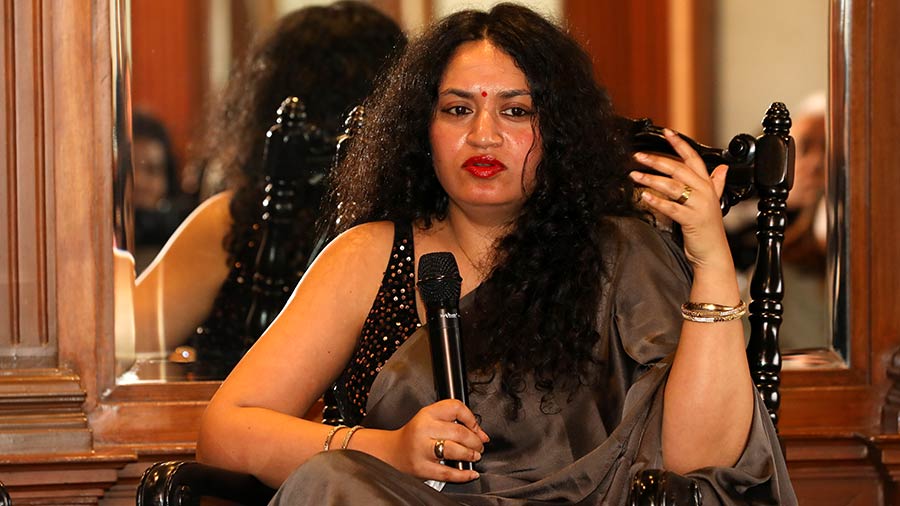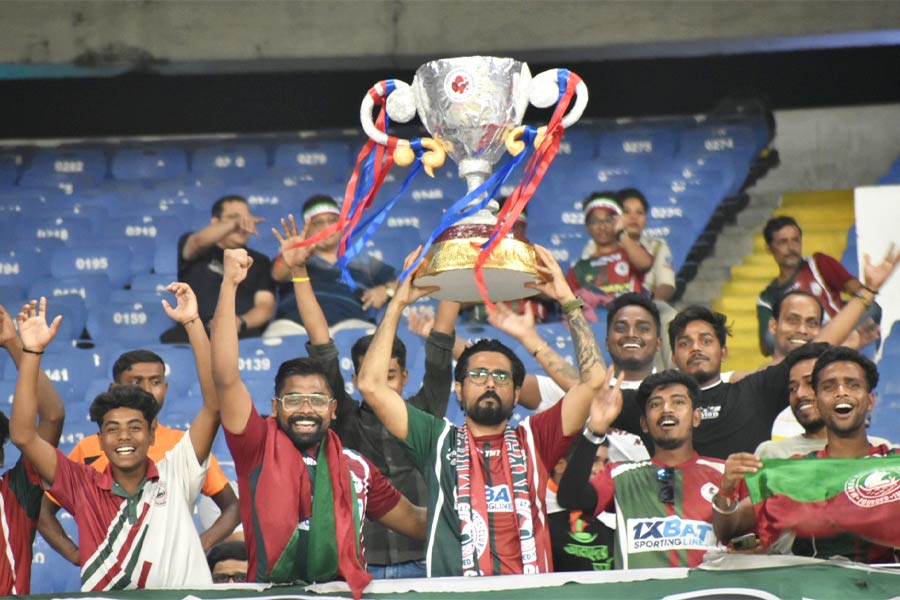“As Indians, we must learn to be inquisitive, be able to figure things out rationally and not be swayed by political or religious rabble-rousing,” said Naveep Suri, the latest guest at An Author’s Afternoon, Prabha Khaitan Foundation’s signature literary event, organised at Taj Bengal, in association with Shree Cement Limited, with My Kolkata as digital partner.
Navdeep Suri is a retired Indian diplomat, having completed 36 years in the Indian Foreign Service (IFS) and served in India’s diplomatic missions in Cairo, Damascus, Washington, Dar es Salaam and London. He was also India’s consul-general in Johannesburg and has also headed the West Africa and public diplomacy departments in the external affairs ministry. A former Indian high commissioner to Australia and ambassador to Egypt and the UAE, Suri’s translations of Nanak Singh’s (his grandfather) Punjabi novels have been published as The Watchmaker, A Life Incomplete and Khooni Vaisakhi. The latest work of translation by Suri is another of his grandfather’s classics, Hymns in Blood, originally written in Punjabi and published in 1948. In conversation with Suri was Manoj Mohanka, who has 25 years of experience as an entrepreneur and angel investor. Shefali Rawat Agarwal, Ehsaas Woman of Kolkata, introduced Suri and Mohanka prior to their conversation.
Jallianwala Bagh massacre — the turning point for Nanak Singh
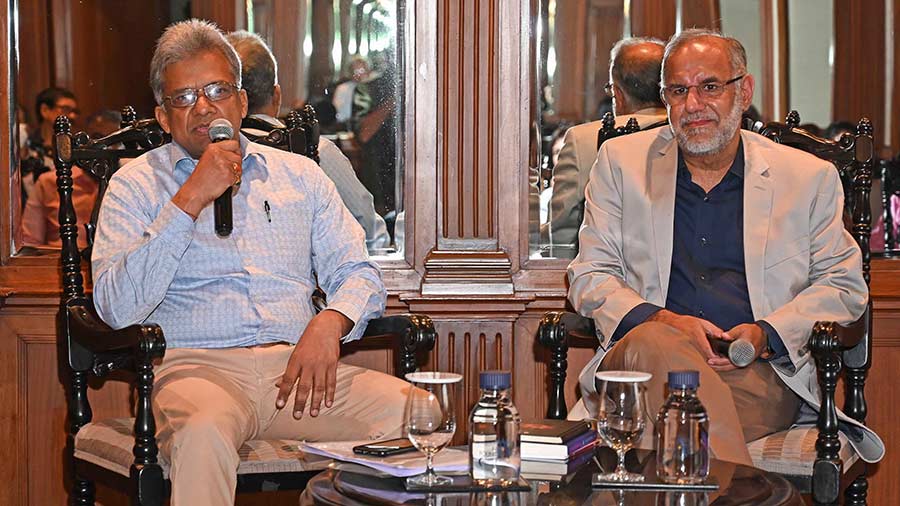
Manoj Mohanka in conversation with Suri (right)
Set in 1947 in an idyllic village called Chakri, on the banks of the Soan near Rawalpindi, Hymns in Blood is a poignant reminder of the troubles and trauma that religious divide can bring in its wake. Having started the discussion on a lighter note by commenting on the UK’s first Prime Minister of Indian and Asian origin, Suri described Pakistan’s claims on Rishi Sunak’s lineage as a case of “sour grapes”. The ex-diplomat explained how it took several generations for immigrants across the world, not just those in the UK, to integrate themselves into new surroundings through years of assimilation.
Mohanka gradually turned the conversation towards Suri’s translations, commending the latter for getting the soul and the spirit of Singh’s work spot on. Suri proceeded to regale the audience with anecdotes from Singh’s turning point in life — surviving the Jallianwala Bagh massacre in 1919. Having lost two of his friends, who had gone with him to protest against the Rowlatt Act, Singh had somehow managed to escape a stampede on that fateful day. He would later use the experience to write Khooni Vaisakhi, published in 1920, which, as Suri reminded all present, was banned and went into oblivion for the next six decades.
‘Why should I assume that whatever my grandfather is saying is gospel truth?’
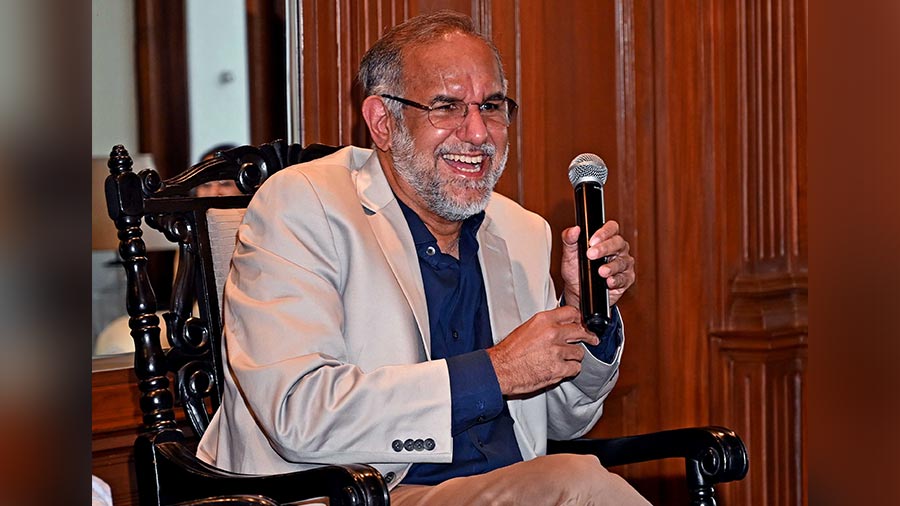
Suri clarified that whether as a writer or translator, he always prefers to do his own research
When asked if Suri had to research and validate the writings of his grandfather in Hymns in Blood, he said: “Why should I assume that whatever my grandfather is saying is gospel truth? I did my own research. I educate myself whenever I write or translate, but I don’t allow a situation where I unwittingly create a wrong impression. Staying true to the original text is my primary lookout.”
Suri admitted that translating from the Gurmukhi script written in 1947 required one to take a leap of faith, as the reader is expected to accept a person from a nondescript village in Punjab speaking in English.
‘This is desecration of the highest order’
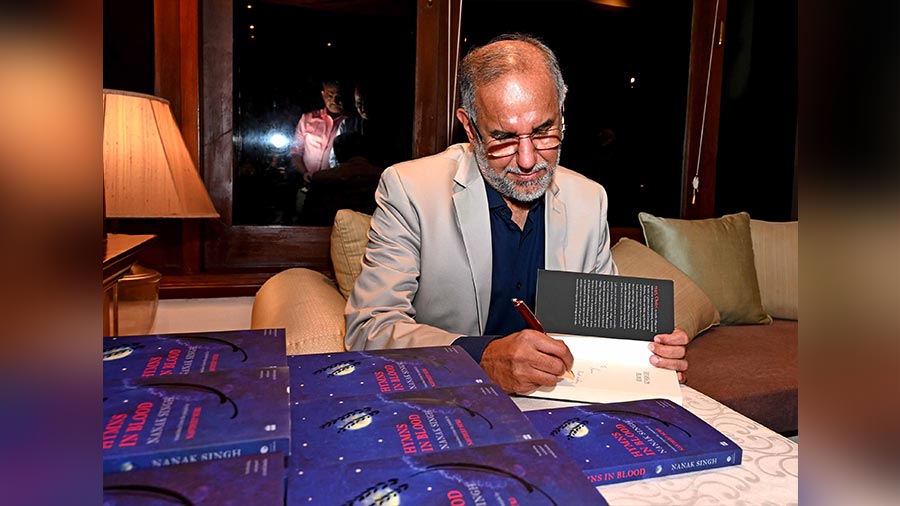
Suri signing copies of Hymns in Blood
Towards the close of the discussion, Suri referred to the recent changes at Jallianwala Bagh as the “desecration of a sacred site”. He added: “Yes, better infrastructure in the form of toilets and other amenities were much needed, but improvement never means that you ‘Disneyfy’ the place. Memorials across the globe allow you to soak in the sanctity of a place and its past, compelling one to pause and reflect on what happened. Here at the Jallianwala Bagh Memorial, murals with happy faces greet the visitors, representing people celebrating Baisakhi…Previously, Jallianwala had just one option for both entry and exit. Now there’s a separate exit. This is desecration of the highest order.”
The session drew to a close with a couple of questions from the audience and with a felicitation of Suri and Mohanka with gifts of dokra artwork by Mrityunjay Kumar Singh.
Guests speak:
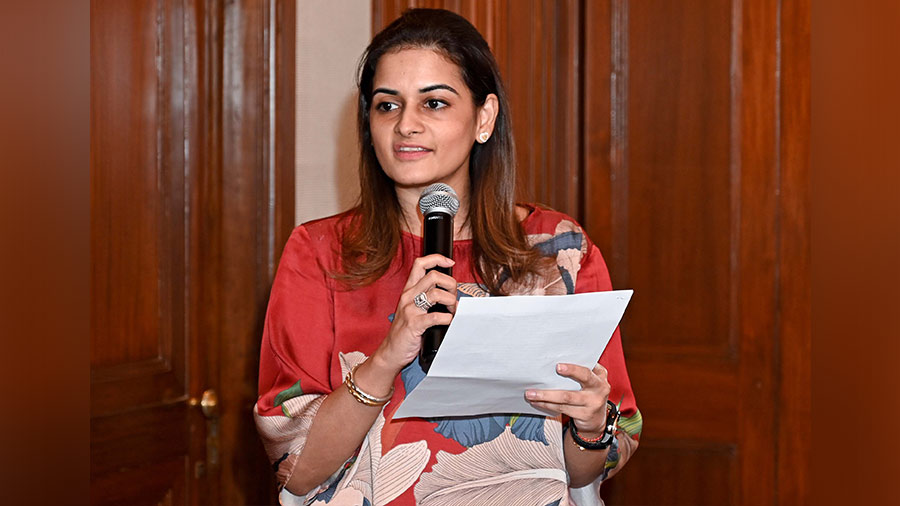
Shefali Rawat Agarwal
“The event was very interesting and it’s amazing to see how Navdeep Suri has translated Gurmukhi script into English and helped us visualise what transpired during the Jallianwala Bagh incident.”
— Shefali Rawat Agarwal, Ehsaas Woman of Kolkata
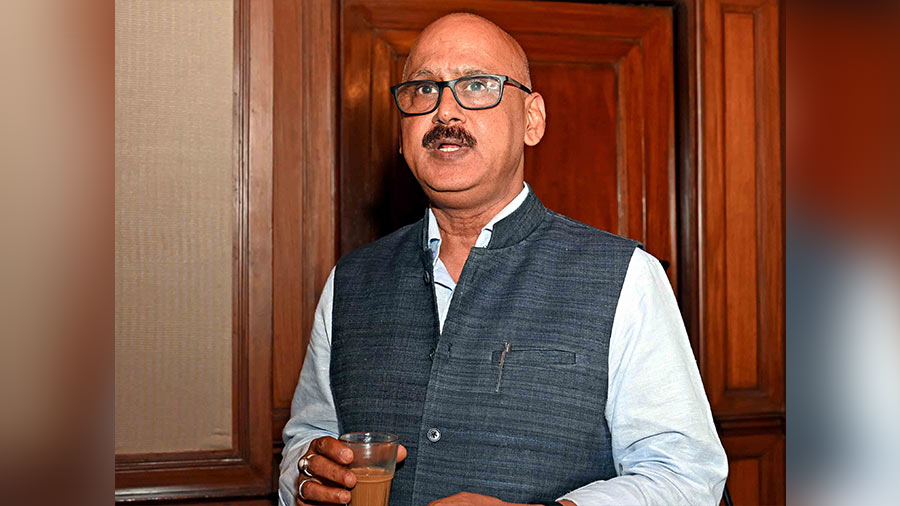
Mrityunjay Kumar Singh
“I have known Navdeep Suri personally through our time at the external affairs ministry. He has been a prolific and versatile diplomat. Today, however, was not about his diplomacy, but his literary excellence. Nanak Singh’s writings are reflective of the society of his times and I’m eagerly waiting to read the same in English and know a lot more about the moments, the history and the heritage of the Jallianwala Bagh episode.”
— Mrityunjay Kumar Singh, retired IPS officer, poet, columnist, lyricist and folk musician
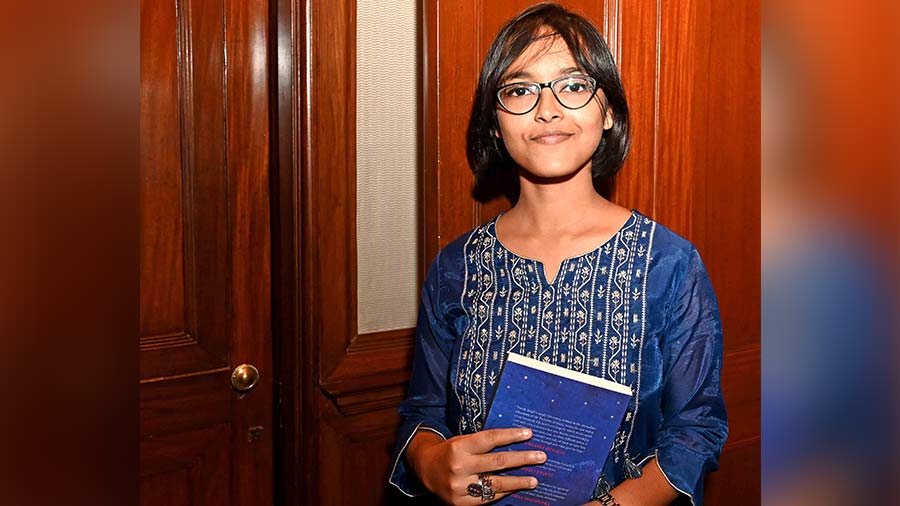
Sneha Ghosh
“The event was enriching. I learnt new things about the Partition, things that I ought to know about my country. Now, I’m all the more excited about reading the book.”
— Sneha Ghosh, student, Loreto College


